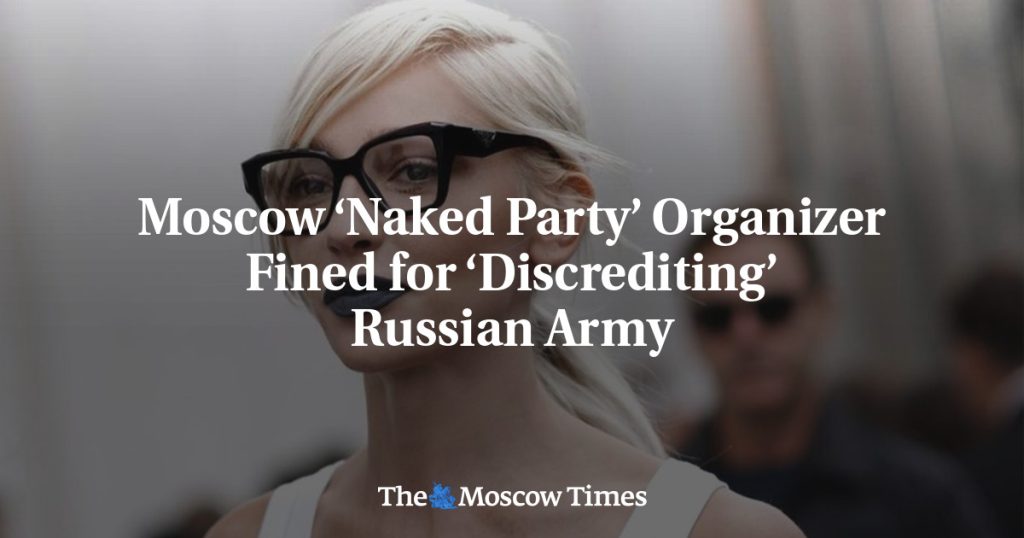Anastasia Ivleeva, a Russian TV personality and blogger, was fined $542 for discrediting the Russian military by organizing a controversial celebrity “nearly naked” party in December. The Tverskoy District Court in Moscow found her guilty of public actions aimed at discrediting the Russian Armed Forces and issued a 50,000-ruble fine. A repeat offense within one year could result in imprisonment for up to seven years. Authorities filed a report against Ivleeva in March 2023, and her defense plans to appeal the verdict, arguing that the statute of limitations had expired.
The criminal case against Ivleeva centers around a March 1, 2022, Instagram post in which she called for Russian-Ukrainian talks to end the military conflict. Despite denying the charges, Ivleeva did not attend the court hearing. Russian courts have been cracking down on activists under wartime censorship laws for discrediting the army and spreading fake news about it since Russia invaded Ukraine. Ivleeva previously faced two separate billion-ruble lawsuits for causing moral suffering by organizing the star-studded “nearly naked” party, which led to her and other celebrities issuing apologies and being pressured to perform pro-war acts.
In March, Ivleeva announced that she planned to vote for President Vladimir Putin’s re-election that month. This was a significant step from her usual stance of not weighing in on political issues, aside from expressing sympathy for jailed Kremlin critic Alexei Navalny in the past. The situation raises concerns about the limitations on free speech and political expression in Russia, with fines and imprisonment being handed down for actions that authorities deem as discrediting the military. Ivleeva’s case is just one example of the consequences faced by those who speak out against government policies or engage in activities that are seen as undermining the state’s interests.
The ongoing crackdown on dissent in Russia has intensified since the invasion of Ukraine, with more activists being targeted for spreading what authorities classify as fake news or discrediting the army. Ivleeva’s situation reflects the broader trend of increasing censorship and control over public discourse in the country. As an influential media figure, her case has garnered significant attention both within Russia and internationally, highlighting the challenges faced by those who seek to express dissenting opinions or engage in activities that are perceived as going against the government’s narratives.
Despite the fines and legal challenges, Ivleeva remains vocal about her support for President Putin and her stance on political issues. Her actions have sparked debates about the limits of free speech in Russia and the consequences of speaking out against the government. As the situation continues to unfold, Ivleeva’s case serves as a reminder of the risks involved in challenging authority and the importance of upholding the right to express differing opinions, even in the face of potential repercussions. The outcome of Ivleeva’s appeal will be closely watched as a barometer of the state of free speech and political expression in Russia.


